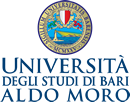TRIALS FOR THE CONTROL OF THE CITRUS MEALYBUG IN CITRUS ORCHARDS BY AUGMENTATIVE RELEASE OF TWO ENCYRTID PARASITOIDS
DOI:
https://doi.org/10.15162/0425-1016/843Abstract
TRIALS FOR THE CONTROL OF THE CITRUS MEALYBUG IN CITRUS ORCHARDS BY AUGMENTATIVE RELEASE OF TWO ENCYRTID PARASITOIDS.
Since the 1980s, the citrus mealybug Planococcus citri (Risso) has become a key pest in Israel, owing to intensive planting of highly susceptible varieties, the introduction of Insect Growth Regulators (which adversely affect coccinellids) and the development of resistance to chlorpyrifos. Management of the mealybug populations in citrus orchards by augmentative releases of parasitoids was investigated between 1993 and 1996 in a series of tests involving the release of 5,000-10,000 Leptomastix dactylopii (Howard) (Encyrtidae) per hectare. Results showed no significant effect on the density of the mealybug on the fruits. In general, the establishment of L. dactylopii was poor and population levels were inferior to those of the naturally occurring Anagyrus pseudococci (Girault) (Encyrtidae). In 1996-1997, augmentative early-spring releases of A. pseudococci at the rates of 10,000-50,000 individuals per hectare markedly increased the population density of A. pseudococci during April and June but had no significant effect on either the mealybug infestation or on fruit damage caused by the pest and its fruit moth associates.
Key words: grapefruit, persimmon, custard apple, coffee, cacao, Citrus, Diospyros, Annona, life cycle, damage, Coccidoxenoides peregrinus, Cryptolaemus montrouzieri, Sympherobius sanctus, mass rearing, cork ring, potato sprout, potato trap, low temperatures, fruit moths.







